Describe the mechanism which brings about the change in the structures depicted in A and B.

1. Cell wall
2 . Strong sugar solution
3 . Protoplasm
4 . Large vacuole
5. Nucleus
Study the diagram and answer the questions that follow:
If the cell in the diagram possessed chloroplasts, where would these be present ?
Step by step video & image solution for Describe the mechanism which brings about the change in the structures depicted in A and B. 1. Cell wall 2 . Strong sugar solution 3 . Protoplasm 4 . Large vacuole 5. Nucleus Study the diagram and answer the questions that follow: If the cell in the diagram possessed chloroplasts, where would these be present ? by Biology experts to help you in doubts & scoring excellent marks in Class 10 exams.
Updated on:21/07/2023Topper's Solved these Questions
Similar Questions
Describe the mechanism which brings about the change in the structures depicted in A and B.

1. Cell wall
2 . Strong sugar solution
3 . Protoplasm
4 . Large vacuole
5. Nucleus
Study the diagram and answer the questions that follow:
What is the state of the cell shown in the diagram?
View SolutionDescribe the mechanism which brings about the change in the structures depicted in A and B.

1. Cell wall
2 . Strong sugar solution
3 . Protoplasm
4 . Large vacuole
5. Nucleus
Study the diagram and answer the questions that follow:
Name the structure which acts as a selectively permeable membrane.
View SolutionDescribe the mechanism which brings about the change in the structures depicted in A and B.

1. Cell wall
2 . Strong sugar solution
3 . Protoplasm
4 . Large vacuole
5. Nucleus
Study the diagram and answer the questions that follow:
Name any one feature of this plant cell which is not present in animal cells.
View SolutionStudy the diagrams given below and answer the questions tht follow:
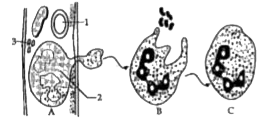
Name the cells labelled 1,2 and 3
View SolutionStudy the diagram given below and then answer the questions that follow :
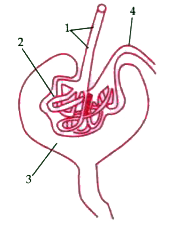
Name the parts labelled 1, 2, 3 and 4.
View SolutionStudy the diagram given below and then answer the question that follow :
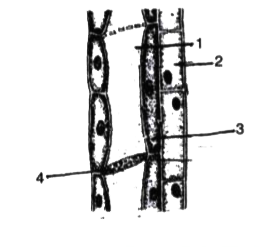
Name the parts labelled 1,2,3 and 4.
View SolutionStudy the diagram given below and then answer the questions that follow :
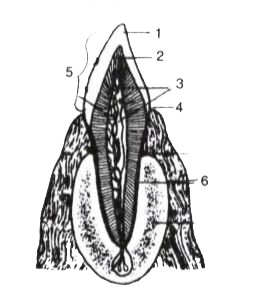
Name the parts labelled 1,2,3,4,5 and 6.
View SolutionThe diagram given below represents a plant cell after being placed in a strong sugar solution . Study the diagram and answer the questions that follow:
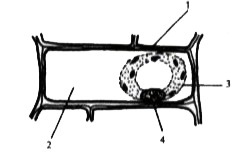
What is the state of the cell shown in the diagram?
View SolutionStudy the diagram given below and then answer the question that follow :
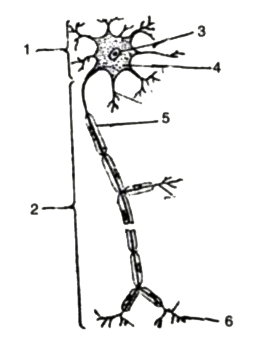
Name the parts labelled 1, 2, 3, 4, 5, and 6.
View SolutionThe diagram given below represents a plant cell after being placed in a strong sugar solution . Study the diagram and answer the questions that follow:
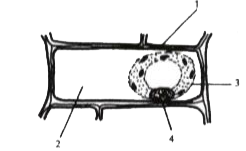
Label the parts numbered 1 to 4 in the diagram.
View Solution
